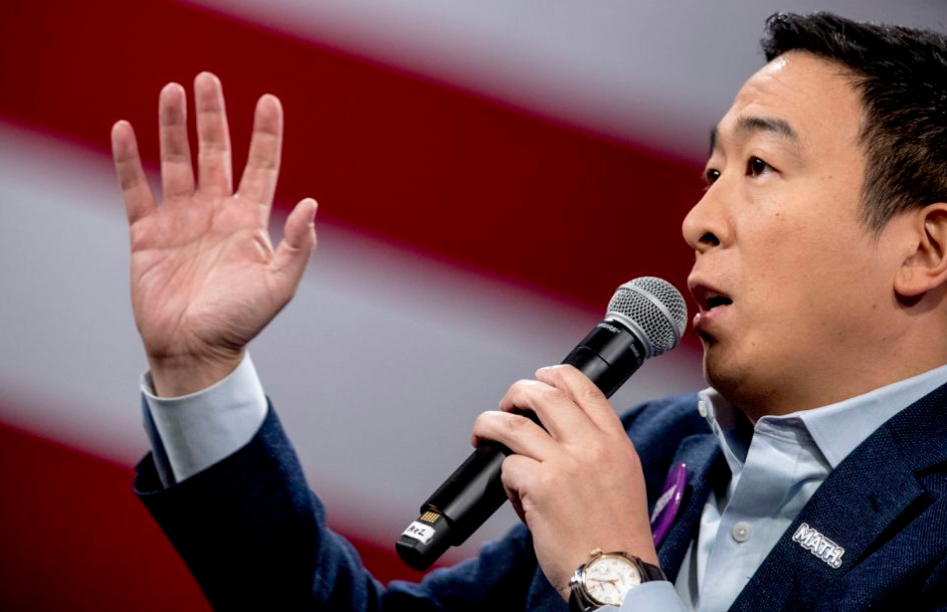
Former presidential candidate Andrew Yang has a lot to say about the economy right now. In a new viral TikTok video, Yang explained that stock market rises don’t correspond with how most people are doing financially, given that only half the country holds stock — and it’s especially sparse among lower-income earners.
What’s more, for most of the people who do own stock, it’s not usually that much.
On Yahoo Finance Live, Yang elaborated on his views about the market and ordinary people’s exposure to it and on how to get people to invest more.
Yang’s theory is that people need to have skin in the game to truly learn about personal finance and investing.
“I’ve concluded that people cannot be taught to invest unless they have money,” he said. “If you have people kind of simulating a portfolio, it’s like, yeah, this is sort of interesting. But then when it’s actually real money, then all of a sudden, things change very quickly.”
Much in line with his campaign platform of a universal basic income, Yang said that people need to be given money to invest.
“Right now, if you’re in the bottom half, essentially, of Americans who don’t have an investment in the stock market, and then you just keep getting beaten over the head with stock market this, stock market that, you’re like, ‘oh no,’” Yang said. “You feel like you are being left behind.”
People need to have money in their hands, Yang says, and then we should be teaching financial literacy to high school students.
“We’re in the midst of the most extreme winner-take-all economy in the history of the world, and it is getting a lot more extreme now, which is mind-boggling,” Yang said. “It was like the most extreme before, and now it’s even more so. And so if you are the average American feeling left behind, it’s not in your head – it’s just in the numbers. And so to me, we have to fix the numbers and the reality.”
Income inequality, indeed, has worsened over the past three decades, where growth in income in the U.S. has been concentrated among the richest households. The top 5% of families, who are part of the highest quintile, saw their income increase at the rate of 3.2% annually from 1981 to 1990, compared to a loss of 0.1% annually for the bottom 20% of earners, according to Pew Research Center.
Financial literacy and having a horse in the race
There’s been a fair amount of imperfect research on personal finance literacy over the years, with some concluding that it doesn’t work. But there’s also been research that has added valuable insight to what Yang is discussing.
Olivia Mitchell and Annamaria Lusardi, professors at Wharton and George Washington University, respectively, and collaborators, both stressed to Yahoo Finance that the “stock market game” is useless or worse.
“My younger daughter quickly figured out that betting the entire lot on a single stock was the best way to get an ‘A’ in the class, as the grades depended on how much money each student made,” said Mitchell. “That was more of a class in lotteries than on financial literacy, I concluded.”
Lusardi doesn’t like the stock market game either, but said simulations can be useful to learn about various outcomes.
“We do not retire many times, we do not buy many houses, we do not go to college or other higher education places many times,” Lusardi said. “It is extremely useful to learn via simulations.”
Lusardi said she shares Yang’s view that incentives work well and that “if you have money, your wish or incentives to learn about investing are greater.”
But, she added, “this does not mean you do not otherwise learn or want to learn about investing.”
In a paper written with Lusardi (and Pierre-Carl Michaud), Mitchell said they found clear evidence that support for what students have learned about personal finance, like most things, requires continued support and practice so as to not atrophy.
In other words, if you don’t use it, you lose it.



























